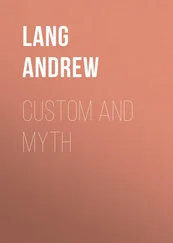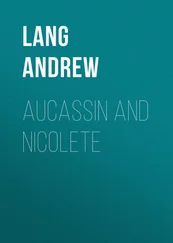Andrew Lang - Books and Bookmen
Здесь есть возможность читать онлайн «Andrew Lang - Books and Bookmen» — ознакомительный отрывок электронной книги совершенно бесплатно, а после прочтения отрывка купить полную версию. В некоторых случаях можно слушать аудио, скачать через торрент в формате fb2 и присутствует краткое содержание. Жанр: foreign_antique, foreign_prose, на английском языке. Описание произведения, (предисловие) а так же отзывы посетителей доступны на портале библиотеки ЛибКат.
- Название:Books and Bookmen
- Автор:
- Жанр:
- Год:неизвестен
- ISBN:нет данных
- Рейтинг книги:3 / 5. Голосов: 1
-
Избранное:Добавить в избранное
- Отзывы:
-
Ваша оценка:
- 60
- 1
- 2
- 3
- 4
- 5
Books and Bookmen: краткое содержание, описание и аннотация
Предлагаем к чтению аннотацию, описание, краткое содержание или предисловие (зависит от того, что написал сам автор книги «Books and Bookmen»). Если вы не нашли необходимую информацию о книге — напишите в комментариях, мы постараемся отыскать её.
Books and Bookmen — читать онлайн ознакомительный отрывок
Ниже представлен текст книги, разбитый по страницам. Система сохранения места последней прочитанной страницы, позволяет с удобством читать онлайн бесплатно книгу «Books and Bookmen», без необходимости каждый раз заново искать на чём Вы остановились. Поставьте закладку, и сможете в любой момент перейти на страницу, на которой закончили чтение.
Интервал:
Закладка:
About thirty years ago no fewer than three copies were sold at Brighton, of all places. M. Quentin Bauchart had a copy only 127 millimetres in height, which he swopped to M. Paillet. M. Chartener, of Metz, had a copy now bound by Bauzonnet which was sold for four francs in 1780. We call this the age of cheap books, but before the Revolution books were cheaper. It is fair to say, however, that this example of the ‘Pastissier’ was then bound up with another book, Vlacq’s edition of ‘Le Cuisinier François,’ and so went cheaper than it would otherwise have done. M. de Fontaine de Resbecq declares that a friend of his bought six original pieces of Molière’s bound up with an old French translation of Garth’s ‘Dispensary.’ The one faint hope left to the poor book collector is that he may find a valuable tract lurking in the leaves of some bound collection of trash. I have an original copy of Molière’s ‘Les Fascheux’ bound up with a treatise on precious stones, but the bookseller from whom I bought it knew it was there! That made all the difference.
But, to return to our ‘Pastissier,’ here is M. de Fontaine de Resbecq’s account of how he wooed and won his own copy of this illustrious Elzevir. “I began my walk to-day,” says this haunter of ancient stalls, “by the Pont Marie and the Quai de la Grève, the pillars of Hercules of the book-hunting world. After having viewed and reviewed these remote books, I was going away, when my attention was caught by a small naked volume, without a stitch of binding. I seized it, and what was my delight when I recognised one of the rarest of that famed Elzevir collection whose height is measured as minutely as the carats of the diamond. There was no indication of price on the box where this jewel was lying; the book, though unbound, was perfectly clean within. ‘How much?’ said I to the bookseller. ‘You can have it for six sous,’ he answered; ‘is it too much?’ ‘No,’ said I, and, trembling a little, I handed him the thirty centimes he asked for the ‘Pastissier François.’ You may believe, my friend, that after such a piece of luck at the start, one goes home fondly embracing the beloved object of one’s search. That is exactly what I did.”
Can this tale be true? Is such luck given by the jealous fates mortalibus ægris ? M. de Resbecq’s find was made apparently in 1856, when trout were plenty in the streams, and rare books not so very rare. To my own knowledge an English collector has bought an original play of Molière’s, in the original vellum, for eighteenpence. But no one has such luck any longer. Not, at least, in London. A more expensive ‘Pastissier’ than that which brought six sous was priced in Bachelin-Deflorenne’s catalogue at £240. A curious thing occurred when two uncut ‘Pastissiers’ turned up simultaneously in Paris. One of them Morgand and Fatout sold for £400. Clever people argued that one of the twin uncut ‘Pastissiers’ must be an imitation, a facsimile by means of photogravure, or some other process. But it was triumphantly established that both were genuine; they had minute points of difference in the ornaments.
M. Willems, the learned historian of the Elzevirs, is indignant at the successes of a book which, as Brunet declares, is badly printed. There must be at least forty known ‘Pastissiers’ in the world. Yes; but there are at least 4,000 people who would greatly rejoice to possess a ‘Pastissier,’ and some of these desirous ones are very wealthy. While this state of the market endures, the ‘Pastissier’ will fetch higher prices than the other varieties. Another extremely rare Elzevir is ‘L’Illustre Théâtre de Mons. Corneille’ (Leyden, 1644). This contains ‘Le Cid,’ ‘Les Horaces,’ ‘Le Cinna,’ ‘La Mort de Pompée,’ ‘Le Polyeucte.’ The name, ‘L’Illustre Théâtre,’ appearing at that date has an interest of its own. In 1643–44, Molière and Madeleine Béjart had just started the company which they called ‘L’Illustre Théâtre.’ Only six or seven copies of the book are actually known, though three or four are believed to exist in England, probably all covered with dust in the library of some lord. “He has a very good library,” I once heard some one say to a noble earl, whose own library was famous. “And what can a fellow do with a very good library?” answered the descendant of the Crusaders, who probably (being a youth light-hearted and content) was ignorant of his own great possessions. An expensive copy of ‘L’Illustre Théâtre,’ bound by Trautz-Bauzonnet, was sold for £300.
Among Elzevirs desirable, yet not hopelessly rare, is the ‘Virgil’ of 1636. Heinsius was the editor of this beautiful volume, prettily printed, but incorrect. Probably it is hard to correct with absolute accuracy works in the clear but minute type which the Elzevirs affected. They have won fame by the elegance of their books, but their intention was to sell good books cheap, like Michel Lévy. The small type was required to get plenty of “copy” into little bulk. Nicholas Heinsius, the son of the editor of the ‘Virgil,’ when he came to correct his father’s edition, found that it contained so many coquilles, or misprints, as to be nearly the most incorrect copy in the world. Heyne says, “Let the ‘Virgil’ be one of the rare Elzevirs, if you please, but within it has scarcely a trace of any good quality.” Yet the first edition of this beautiful little book, with its two passages of red letters, is so desirable that, till he could possess it, Charles Nodier would not profane his shelves by any ‘Virgil’ at all.
Equally fine is the ‘Cæsar’ of 1635, which, with the ‘Virgil’ of 1636 and the ‘Imitation’ without date, M. Willems thinks the most successful works of the Elzevirs, “one of the most enviable jewels in the casket of the bibliophile.” It may be recognised by the page 238, which is erroneously printed 248. A good average height is from 125 to 128 millimetres. The highest known is 130 millimetres. This book, like the ‘Imitation,’ has one of the pretty and ingenious frontispieces which the Elzevirs prefixed to their books. So farewell, and good speed in your sport, ye hunters of Elzevirs, and may you find perhaps the rarest Elzevir of all, ‘L’Aimable Mère de Jésus.’
BALLADE OF THE REAL AND IDEAL
O visions of salmon tremendous,
Of trout of unusual weight,
Of waters that wander as Ken does,
Ye come through the Ivory Gate!
But the skies that bring never a “spate,”
But the flies that catch up in a thorn,
But the creel that is barren of freight,
Through the portals of horn!
O dreams of the Fates that attend us
With prints in the earliest state,
O bargains in books that they send us,
Ye come through the Ivory Gate!
But the tome that has never a mate,
But the quarto that’s tattered and torn,
And bereft of a title and date,
Through the portals of horn!
O dreams of the tongues that commend us,
Of crowns for the laureate pate,
Of a public to buy and befriend us,
Ye come through the Ivory Gate!
But the critics that slash us and slate, 1 1 “Slate” is a professional term for a severe criticism. Clearly the word is originally “slat,” a narrow board of wood, with which a person might be beaten.
But the people that hold us in scorn,
But the sorrow, the scathe, and the hate,
Through the portals of horn!
Fair dreams of things golden and great,
Ye come through the Ivory Gate;
But the facts that are bleak and forlorn,
Through the portals of horn!
CURIOSITIES OF PARISH REGISTERS
Интервал:
Закладка:
Похожие книги на «Books and Bookmen»
Представляем Вашему вниманию похожие книги на «Books and Bookmen» списком для выбора. Мы отобрали схожую по названию и смыслу литературу в надежде предоставить читателям больше вариантов отыскать новые, интересные, ещё непрочитанные произведения.
Обсуждение, отзывы о книге «Books and Bookmen» и просто собственные мнения читателей. Оставьте ваши комментарии, напишите, что Вы думаете о произведении, его смысле или главных героях. Укажите что конкретно понравилось, а что нет, и почему Вы так считаете.












